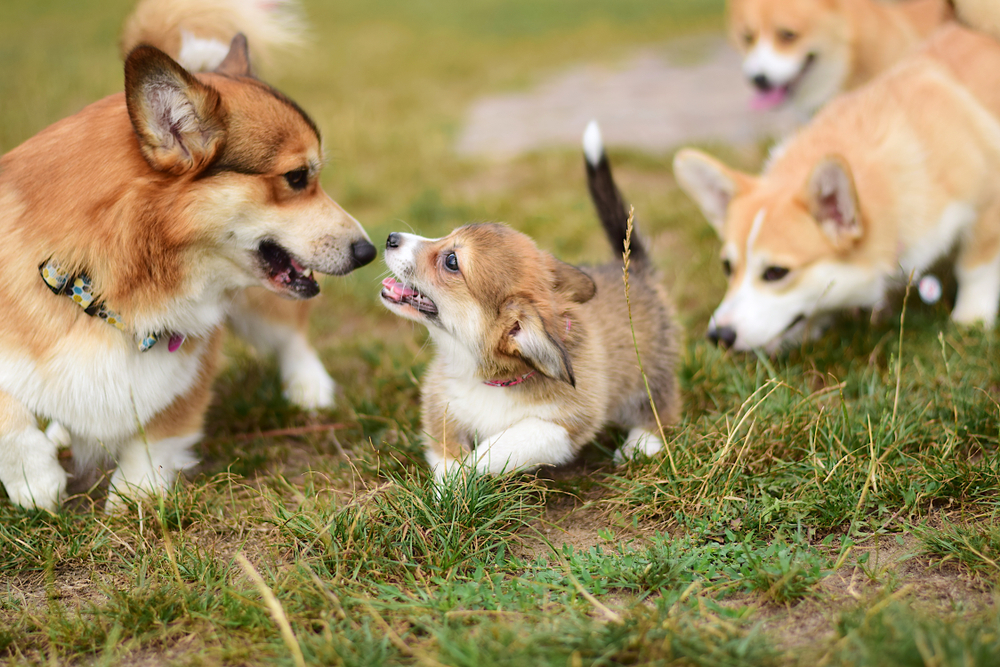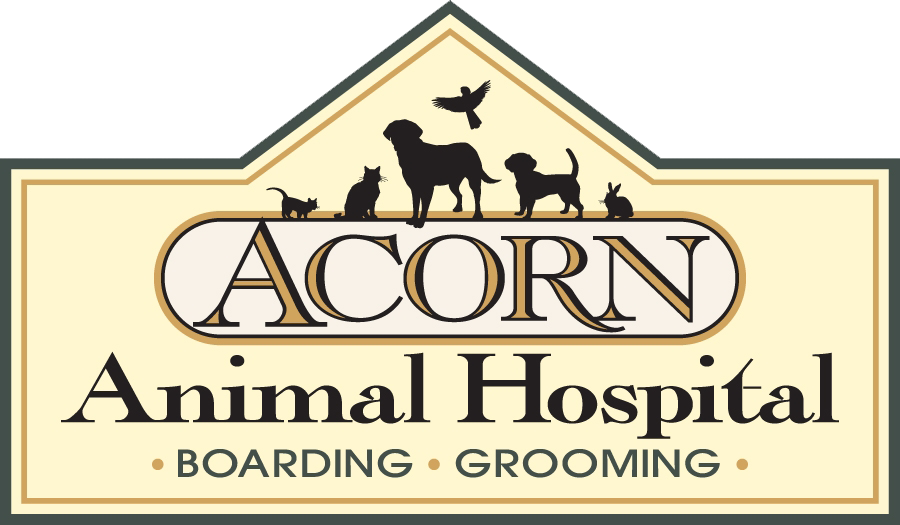Properly socializing your puppy is the most impactful step you can take, to ensure they become a well-adjusted and obedient adult dog. Our team at Acorn Animal Hospital would like to provide advice to help ensure your puppy’s socialization is a success.
Puppy socialization period
The optimum time to socialize your puppy is between 3 weeks and 16 weeks of age. This short window is the time when puppies are most amenable to accepting new experiences, so exposure to numerous different situations during this time can help ensure they don’t become overly reactive adult dogs. While this time period is the most beneficial for socialization, continue to introduce your puppy to new people and experiences throughout their first year. However, since puppies aren’t fully vaccinated until they are about 12 weeks of age, you must ensure they aren’t exposed to any dogs affected by infectious diseases. This means that you should avoid dog parks and dog-oriented stores, but puppy classes should be acceptable, as long as the instructor requires attendants to be vaccinated and free from illness signs.
Puppy socialization strategy
Simply exposing your puppy to new people and experiences is not socializing them. They also need to be comfortable during the experience, and not feel overwhelmed or threatened. Steps to take to ensure successful socialization include:
- Body language — Be attuned to your puppy’s body language and be able to recognize that they are upset, so you can comfort them and remove them from the situation, before they form a negative association with the experience. Some puppies are more shy and timid, and need socialization to proceed more slowly. Clues that indicate your puppy’s personality are most easily observed when they encounter a new person or pet.
- Extroverts — When meeting someone new, extroverted puppies will pull on their leash, straining toward the new person or pet. They will wag their tail, and sometimes their entire rear end. They may excitedly whimper and attempt to jump on their new friend. These puppies need to learn “Sit” and “Stay” early. You can reinforce these commands using treats.
- Introverts — When meeting someone new, introverted puppies will lower their body, and may tuck their tail between their hind legs. They may look away from the new person or pet, and retreat behind your legs as they approach. After learning basic obedience commands, these puppies need to make positive associations. When new people or pets approach, offer a high value treat, or a long tummy rub.
- People and pets — When introducing your puppy to new people and pets, make the process gradual. You can start by having a single friend meet your new addition. If your puppy seems comfortable meeting new people one at a time, you can graduate to two people, and gradually work up to larger gatherings. You can use the same approach when introducing your new puppy to other dogs, but choose dogs whom you know will tolerate your puppy’s antics, to ensure a positive experience.
- Experiences — Expose your puppy to as many new experiences as possible, ensuring you provide treats, pets, and praise, to help make each situation positive.
Puppy socialization checklist
Your lifestyle will influence what situations your puppy encounters, so customize their checklist based on the experiences they will likely encounter. Topics to consider include:
- Handling — Pick them up, examine their ears, pick up their feet and gently pinch their nails, lift their tail, open their mouth and run your fingers along their gum line, and palpate their hips and belly.
- People — Introduce your puppy to men, women, children, toddlers, babies, bearded men, and people wearing hats, coats, and masks.
- Other animals — Introduce your puppy to different dog breeds, cats, horses, livestock, birds, and any other species in your environment.
- Sounds — Expose your puppy to thunder, fireworks, crying babies, doorbells, garage doors, vacuums, alarms, loud music, sirens, and traffic noises.
- Locations — Take your puppy to various places, including Acorn Animal Hospital, and:
- On car rides
- Hiking trails
- City and suburban streets
- Parks
- Near schools
- Dog parks and doggy day care facilities—only when they are fully vaccinated
- Surfaces — Expose your puppy to water, gravel, mud, ice, snow, slick tile, wood floors, and stairs.
- Moving objects — Introduce your pet to moving bikes, skateboards, motorcycles, cars, trucks, buses, and leaves blowing.
Puppy socialization scoring

As you socialize your puppy, you may need to revisit situations, depending on how they handled the experience. Score each situation as you proceed.
- Gold star — Your puppy is doing well. They were able to calmly accept the situation.
- Silver star — You need to revisit these situations. Your puppy jumped, barked, pulled on their leash, froze, or became anxious. Treats may help refocus their attention.
- Frowny face — These areas need serious work. Your puppy ran away, hid, growled, or struggled.
For all situations where your puppy did not receive a gold star, you should continue to revisit the experience at a lower intensity level, until they are able to calmly accept the situation.
Socializing your puppy is paramount to ensuring they become a confident, obedient adult dog. If you have any questions regarding your puppy’s socialization, or if you would like to introduce them to our hospital, contact our team at Acorn Animal Hospital to schedule an appointment.
